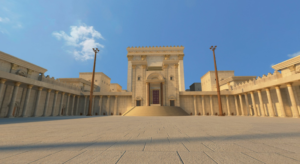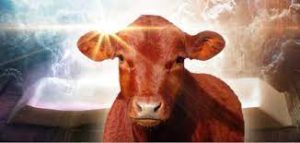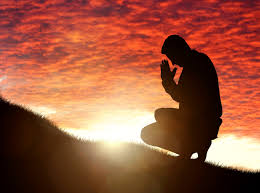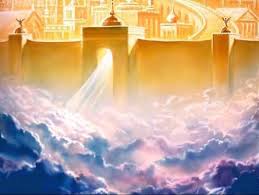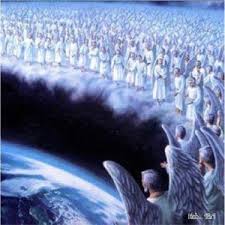Af – Jonah’s and God’s Way in the World
Jonah’s and God’s Way in the World
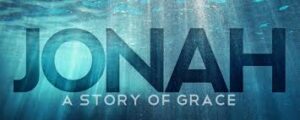
Jonah had a variety of responses to God’s call on his life. The conversation between ADONAI and Yonah begins and ends with what ought to be done about the wicked and ignorant people in the great city of Nineveh (1:2 and 4:11). Jonah’s view of strict justice verses God’s desire to forgive even the most heinous sinners is the subject of the debate. Yonah’s last substantive argument summarizes his perspective: That is why I was so quick to flee to Tarshish. I knew that You are a gracious and compassionate God, slow to anger and abounding in love, a God who relents from sending calamity (Jonah 4:2b, also see Joel 2:13). Jonah doesn’t like it, but God insists on it.
Common sense seems to be in Jonah’s favor. The Assyrians were the bullies on the block and they needed to be taught a lesson. Yonah’s view of strict justice would say, “What goes around comes around.” When the bully says, “I’m sorry, I’ll never do it again,” our human nature is not impressed. Most people still believe that the wicked should pay the consequences for their crimes, not have the consequences removed through forgiveness. As long as a violent threat exists, it constitutes a present danger.
Yonah learned through a series of personal experiences that God’s compassion and clemency were not weakness in God’s justice, but were better justice than our human nature would dictate. Jonah personally felt the weight of ADONAI’s judgment in the storm at sea. He experienced his own false moral superiority (to God’s) in being willing to die for his position while sinking beneath the waves. He died and was resurrected. Then he realized the value of God’s better justice when it was directed at him. By Yonah’s own standards, he knew he deserved to die for his rebellion. But he was taught that his own purposeful rebellion as well as Nineveh’s ignorant rebellion both required God’s intervention.
The reluctant prophet became angry again at the Ninevites’ escape from death. In realizing the needs and longings of his own humanity, Yonah points out all creation’s basic reliance on God’s forgiveness to temper strict justice and grant grace, or undeserved deliverance. The book’s special contribution to the canon of Scripture can be seen in God’s question: And should I not have concern for the great city of Nineveh, in which there are more than a hundred and twenty thousand people who cannot tell their right hand from their left – and also many animals’ (4:11)? God’s concern is for the part of His creation that is ignorant of His ways and yet responsible for their actions.12
1. The book of Jonah asserts that God has created, controls and cares for the natural world. Jonah’s confession at the midpoint of the storm in 1:9 speaks of God’s work in making the sea and the dry land, that is, of making all that exists. It is clear that ADONAI has not retired from the scene after creating the heavens and the earth. God controls the macro and the micro creatures and the forces of nature. The story begins with the LORD hurling a great wind on the sea (1:4), and ends as ADONAI again sends a scorching east wind, this time directed at Yonah (4:8). HaShem appoints a great sperm whale (1:17), but also a tiny worm and a plant (4:6-7). God’s care for His creatures is movingly expressed in the last words of the book: and also many animals’ (4:11). The animals had also taken part in Nineveh’s repentance (3:7-8). The planet does not exist for our sake alone, God is also concerned about the animals.
2. Alongside these assertions of God’s creating and sustaining work in nature, Jonah’s prayer testifies that God rescues those who call upon Him in times of trouble. Yonah, having been swallowed by the sperm whale, tells us of his experience. Three statements speak about God’s saving ability: In my distress I called to ADONAI, and He answered me (2:2a) . . . When my life was slipping away, I remembered the LORD (2:7a) . . . Salvation comes from ADONAI (2:9b). Taken together, these words of witness speak comfort to all believers who are experiencing distress, whose lives are slipping away. Jonah had experienced a resurrection from death. Here he tells others about that experience and speaks of ADONAI who rescues.
3. The book of Jonah testifies that God cares about all the people of the world. Jonah’s statement: I knew that You are a gracious and compassionate God, slow to anger and abounding in love, a God who relents from sending calamity (Jonah 4:2b) is a typical biblical expression of God’s love for the people of Isra’el (Exodus 34:6-7; Psalm 145:8; Joel 2:13). The only Israelite in this entire story is Yonah. God’s love for Isra’el is illustrated in His compassion, patience and love in dealing with this prophet. If the story had ended with 1:16, the point would have been clear: Do not try to run away from the LORD! God, however, continued to work with Jonah, putting up with his rebellion, resurrecting him, giving him a second chance to complete his missionary assignment to Nineveh, and patiently trying to teach him. The point is clear: like a parent’s love for a child, even a child who runs away, God’s love for one of God’s own people never gives up (Hosea 11).
These attributes of HaShem are seen in a new and nontraditional way in 4:2. God is described as gracious, compassionate, slow to anger and abounding in love – this time not toward the people of Isra’el but toward the people of Nineveh! God cares about the people of the world. One cannot miss the positive portrayal of the Gentiles in this story. The sailors along with their captain are men of virtue and action (1:5-6), decent human beings (1:12-14) who are eager to do the right thing in the eyes of God about whom they have heard little (1:14). They finally come to worship that God (1:16). After only a few words from the reluctant prophet about the corrupt state of their city the people of Nineveh and their king, even their animals, all repented and turned their life around (3:5). The story begins with God’s decision to send a prophet to this great, but wicked city and ends with His declaration of concern for its people and even for the animals that live there.
4. The story of Jonah makes clear that God may change His mind about punishment. When King Darius signed a decree, it could not be changed, even if the king himself wanted to grant amnesty (Daniel 6:8-15). God is not bound by any legal documents or pronouncements, even pronouncements ADONAI Himself has made! When a people repent, God may call off an announced disaster, even a disaster announced by a prophet. Will God always do this? The king of Nineveh is a good enough theologian to respond: Who knows? God may yet relent and with compassion turn from his fierce anger so that we will not perish (3:9). The story of Jonah illustrates the sayings of Jeremiah about the potter and the clay (Jeremiah 18:7-10).
5. The book of Jonah assumes that the LORD is the only true God. When writing his book, Jonah was aware of religious pluralism, describing the piety (1:5-6) and practices (1:7) of the Gentile sailors without judgment or comment. The sailors, however, are not left to try to find the one true God through their own religions but become believers in the God of Abraham, Isaac and Jacob. The people of Nineveh also respond positively to his message. The book makes clear that ADONAI is the only true God (Deuteronomy 6:5; Psalm 31:6; Isaiah 44:9-20 and 45:5-6) with the declaration that those who worship worthless idols turn away from God’s love for them (2:8). This suggests that slipping over into the worship of worthless idols must have been a real temptation for those first hearers of the story of Jonah.
6. The story of Jonah indicates that those who experience the LORD’s deliverance are invited to respond in thanksgiving, witness, and praise. There is a pattern to the story. The sailors are in distress, are delivered, and then respond by worshiping ADONAI. Jonah drowns, is resurrected, and responds with words of witness, praise and acts of worship in his prayer. The story of Jonah not only pictures the God who creates, sustains and delivers, but also provides a model for the response of those who have experienced the LORD’s blessing and deliverance. The story invites both the people of God and the peoples of the world to join in with the song of praise emerging from the belly of the great whale.13









